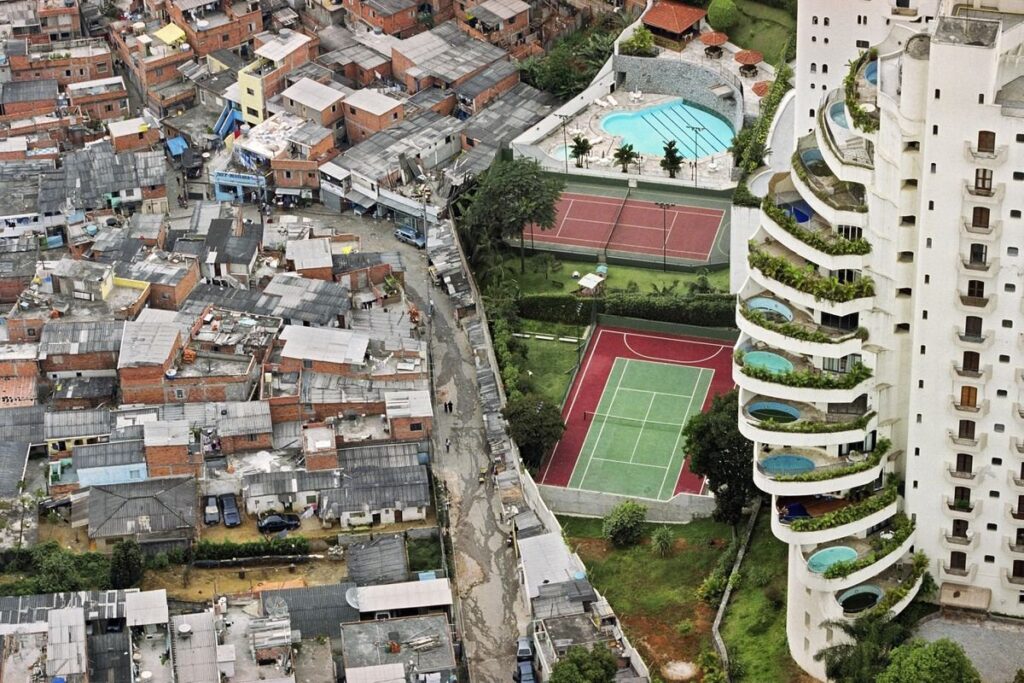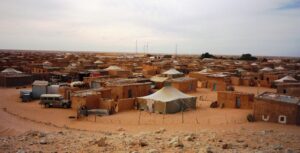In the years following World War Two, as numerous direct colonies won formal independence, there was a widespread belief, or at least a hope, that political independence would lead fairly rapidly to significant economic progress. No longer under the control of foreign exploiters, the ex-colonies would be free to undergo economic development like that which had occurred in the wealthy capitalist countries. With assistance from benign international institutions and former colonisers who had seen the error of their ways, the “underdeveloped” global south, renamed “developing countries”, would soon “catch up”, and the huge economic differences between countries would be overcome.
As is obvious today, it didn’t happen. In 2015, not quite 1 billion people in twelve “first world” countries had a per capita GDP of US$44,392; 6.2 billion people in 148 “third world” countries had a per capita GDP one-tenth that size. Why, and how?
The “why” is relatively easy, while the “how” requires a bit more detail and analysis. Despite the nonsensical propaganda they produced, European imperialists didn’t colonise Africa, Asia and the Americas out of noble motives. Their motive, pure and simple, was greed. When a combination of their weakening in the world war and the uprisings of colonised peoples forced them to grant political independence, that didn’t make them stop being greedy. It just made them modify their techniques of exploitation.
The underdevelopment of the global south was not some kind of natural misfortune, like a drought or poor soil or geographical isolation. It was something inflicted on the colonies by their Western colonisers—something concisely summarised 50 years ago by the Guyanese Marxist Walter Rodney in the title of his book, How Europe Underdeveloped Africa.
Of course, it was easier for imperialists to plunder the southern countries when they had direct political control over them. They could engage in what amounted to looting and piracy: forced labour or slavery, direct expropriation of land and other wealth, taxes remitted to the imperialist centres, destruction of industries that might compete against imperialist companies.
Forced to give up direct political control, the imperialists nevertheless continued exploiting the former colonies in more subtle ways. Capitalist competition, promoted as a pathway to growth, was in reality a deliberate dead end. The wealth extracted from colonies over decades or centuries had built large, technically advanced businesses in the imperialist centres. Conversely, the exploitation meant that the former colonies lacked the capital that would have been necessary to create industries that could compete with the imperialists.
No problem, declared the ideological servants of imperialism: the former colonies can borrow the capital they need in order to develop; then they can repay the loans from the profits of their new industries. One of several flaws in this argument was that many citizens of former colonies thought it a bit unfair that they should have to borrow money that had been stolen from them, and then pay interest to the thieves.
This is where international bodies such as the World Bank and the International Monetary Fund come in. They pose as independent, well-meaning sources of capital for the “developing” economies. In reality, they are, and have always been, controlled by the governments of the wealthiest imperialist countries. This ensures that loans go only to governments that don’t rock the boat—the boat that is carrying the enormous interest payments that poor countries must make to both bilateral “donors” and to the IMF/WB mafia.
These interest payments are transfers from poor countries to wealthy ones, and are a significant part of what keeps the global south poor. A 2020 study of 63 “impoverished countries” by the Jubilee Debt Campaign, based on IMF and World Bank figures, found that their external debt servicing in 1998 consumed an average 16.6 percent of government revenue. Partial debt relief for some of the most indebted countries reduced that figure to 5.5 percent by 2011, but it then started rising again, reaching 11.1 percent in 2018. The COVID pandemic will have undoubtedly raised it further. The World Bank notes of the pandemic’s impact: “Low- and middle-income countries’ external debt-to-GNI [gross national income] ratio rose to 29 percent in 2020 from 27 percent in 2019, and the debt-to-export ratio increased to 123 percent from 106 percent in 2019”.
These figures stand like an ironic commentary on the idea that “development” loans would make it possible for poor countries to build industries that increased their incomes and repaid the loans. Even if these countries were to do the impossible for a year and devote all of their export revenues—that is, every cent of export sales, not just the profits—they would still not be able to pay off their full foreign debts.
The owners of the imperialist economies of course never intended for their governments to help poor countries create industries that could compete against them; imperialist corporations are not suicidal. So “development” in the poor countries is restricted to fields that continue the transfer of wealth to the rich countries: direct imperialist investment, the profits of which of course go to the investing corporations; and natural resource extraction and industries characterised by low- or at best medium-level technology, which have correspondingly low rates of profit.
Capitalists in the global south are confined to the least productive, and therefore least profitable, fields. As a result, much of the value created in the south is transferred to the imperialist countries in the course of trade: the poor countries import overpriced goods and sell their own products for less than their real value. The amounts of money transferred in this way, called “unequal exchange” by economists, are staggering.
A recent article in the journal New Political Economy attempts to quantify the sum for the years 1960-2018. The authors write: “Over the whole period, drain from the South totalled $62 trillion (constant 2011 dollars) … Appropriation through unequal exchange represents up to 7% of Northern GDP and 9% of Southern GDP”. That is not a typo: the global south was deprived of $62 trillion. Such value transfers are the underlying cause of situations such as the current disaster in Sri Lanka.
If imperialist corporations seem to have arranged everything for their own benefit, it must be recognised that they can’t do it all on their own. Even in the time of direct colonies, to maintain control, the colonisers needed collaborators within the colonial population. After political independence, imperialism still required a social layer that would cooperate to keep the system ticking over profitably.
It found the components of that layer among local capitalists, large landowners and would-be capitalists. In some cases, they might have come from among the open collaborators. In others, they came out of the movements for independence, from those leaders whose visions didn’t go beyond a change of personnel at the top.
Because of the huge sums of value appropriated by the global north, the capitalists of the global south generally cannot compete with the major imperialist industries. Aside from situations of natural monopoly (oil, for example), capitalists in the poor countries have to rely on low-profit areas such as manufacturing consumer goods that northern capitalists have abandoned or assembling electronics for high-tech imperialist companies. In these labour-intensive industries, the poverty and low wages of the south allow them to compete, and they are driven to maintain those low wages as a matter of their own survival.
So, while southern capitalists might sometimes feel that they are oppressed by imperialism and, if they have the opportunity, might put some pressure on imperialist corporations for improved terms of their collaboration, they know well that they share class interests with the imperialists and have a common enemy in the working class. If Marx called competing capitalists a “band of warring brothers”, we might call imperialists and southern capitalists a “band of squabbling big brothers, little brothers and occasional distant cousins”.
This is why southern capitalists are never reliable allies of working people and poor farmers in any struggle against imperialism. It is why the possibility of a radical popular movement forming government in a third world country always arouses the threat of imperialist intervention against it, to ensure that the country’s capitalists remain in charge.
(Courtesy: Red Flag, a publication of Socialist Alternative, an Australian socialist group.)




